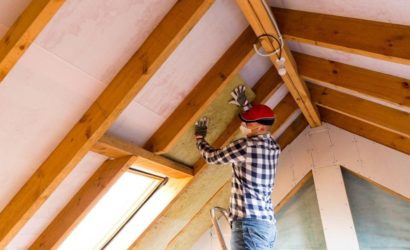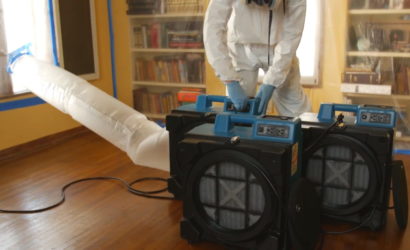The air we breathe has a significant impact on one’s health. The air may carry pollutants and chemicals that may harm our health. If the air is not clean, it may lead to various illnesses that may potentially harm the body.
Air quality refers to the degree to which the ambient air or the atmospheric air at its natural state is free from chemicals and air-borne pollutants. Air quality is examined by measuring a number of indicators of pollution. Air quality varies, depending on where the ambient air is found – indoors or outdoors.
However, indoor air quality is more important to address since most of the time; people spend their time inside the infrastructures such as houses and buildings. The Environmental Protection Agency (EPA) states that pollutant levels are two to five times higher inside the house than outdoors.
These pollutants include particulate matter such as lung irritants, allergens, toxic chemicals, gases and volatile organic compounds (VOCs). According to the World Health Organization (WHO), on the other hand, an estimated 3 billion people across the globe cook and heat their homes using solid fuels including wood, charcoal, coal and dung on traditional stoves and open fires. These ways of cooking and heating produce high amounts of indoor air pollution.
These practices may even produce carbon monoxide, a colorless and poisonous gas. However, even in developed countries, inefficient heating and cooling systems may lead to indoor air pollution that may lead to certain diseases, particularly those affecting the lungs. Hence, it is important to ensure the efficiency of all cooling and heating appliances.
Efficiency ratings in cooling and heating appliances
If you’re looking to purchase a heating or cooling appliance, there are efficiency ratings to measure the equipment’s efficiency in terms of how much it would cost to operate.
Generally, the system performance is measured by two efficiency ratings – seasonal energy efficiency ratio (SEER) and energy efficiency ratio (EER).
When there are higher ratings, these mean that there is only a low operating cost of the equipment. Thus, you’re going to save a lot when it comes to the use of these appliances. However, higher ratings would mean higher price tags, too.
However, quality is always more important to consider than the price of the appliance. In the long run, you’re going to save more with more expensive units with higher efficiency ratings.
Check out Energy Star if your heating or cooling appliances are on the list of the most efficient.
Check out our guide and reviews of cooling and heating appliances.
Also, check out our guide for energy savings and air quality control.
Summary
Heating and cooling appliances are vital for every home or building. With the drastic changes in the climate, it is important to keep the air quality and temperature inside the house as comfortable as possible. However, in buying your heating or cooling equipment, there are many factors to consider such as how much it costs, how efficient it is and how much energy it would save.
Thus, certifications and efficiency ratings are available to assure the consumers that a certain product is high-quality and energy-efficient. When these appliances are certified, it means that you’re buying something that can help you save money on energy and at the same time, repair costs. More expensive units mean that they have undergone series of quality assurance tests, compared to cheaper ones but will bog down on you when you need them the most.




